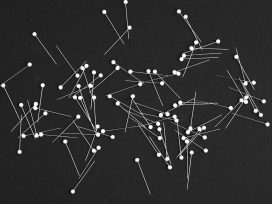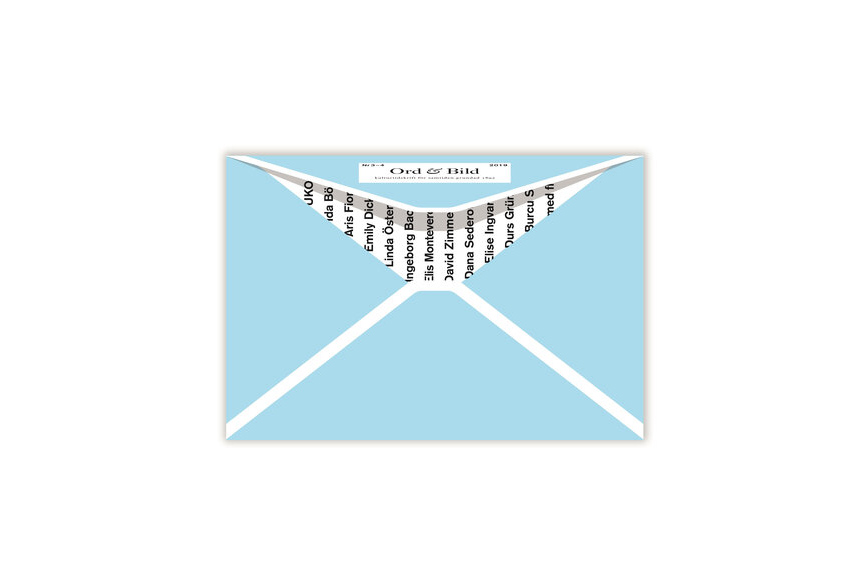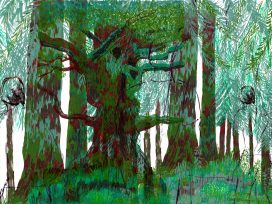
In a world saturated with information, stimuli and industrialized noise, silence can be a reprieve – a vital force that is at least as clear as the ‘loud’ slogans raised at protests and rallies.
‘Ord&Bild’ has compiled an issue on the letter as literary genre, presenting and experimenting with the many forms that letters and personal messages can take today: emails, text messages, social media posts, not to mention that allegedly endangered species, the handwritten letter.

Sofia Gräsberg contributes with a deeply personal essay about the anxiety of revealing, even exposing oneself in a letter, and the deep satisfaction of receiving a response. Kajsa Sundin takes Chris Kraus and Gaspara Stampa as two examples of women who wrote letters in the hope of inspiring love in then men they coveted, failing in that endeavour, but becoming writers in the process. Love is also at the centre of Johan Örestig’s essay on the letters of Rosa Luxemburg, as well as in an exchange between Majsa Allelin and Kristina Alstam about Julie de Lespinasse’s letters of the eighteenth century, which ends in praise – of a kind – for the value of unrequited love.

Burcu Sahin
Photo by Carla Orrego Veliz via Sverigesradio.se
One of Sweden’s most acclaimed young poets, Burcu Sahin, contributes an essay on text and textile, using feminist perspectives on literature, labour and metaphor. What are the connections between text and fabric, and what meaning does embroidery from a lost home country hold? And Elis Burrau and David Zimmerman read a 1500-page long volume of the correspondence between Nobel Prize laureate Eyvind Johnson and his friend, the writer Rudolf Värnlund.
Also: A new Swedish translation, by Ulf Karl Olov Nilsson, of a selection of the poems that Emily Dickinson wrote directly onto envelopes; a peek into an ongoing conversation, on postcards, between Aris Fioretos and Durs Grünbein; and Magdalena Sørensen on the letters of Joan Didion.
More articles from Ord&Bild in Eurozine; Ord&Bild’s website
This article is part of the 20/2019 Eurozine review. Click here to subscribe to our reviews, and you also can subscribe to our newsletter and get the bi-weekly updates about the latest publications and news on partner journals.
Published 26 November 2019
Original in English
First published by Eurozine
© Eurozine
PDF/PRINTSubscribe to know what’s worth thinking about.

In a world saturated with information, stimuli and industrialized noise, silence can be a reprieve – a vital force that is at least as clear as the ‘loud’ slogans raised at protests and rallies.

On the border between Poland and Belarus, the Forest has become the subject of a humanitarian crisis. An artist’s report, based on meetings with activists and refugees, charts this contested space. Poetry honours those lost in transit.